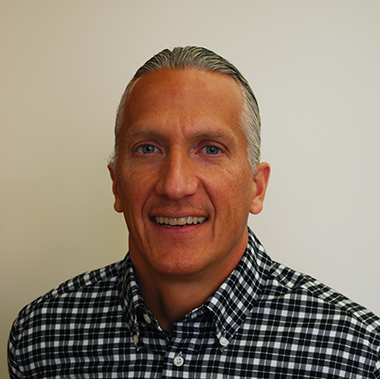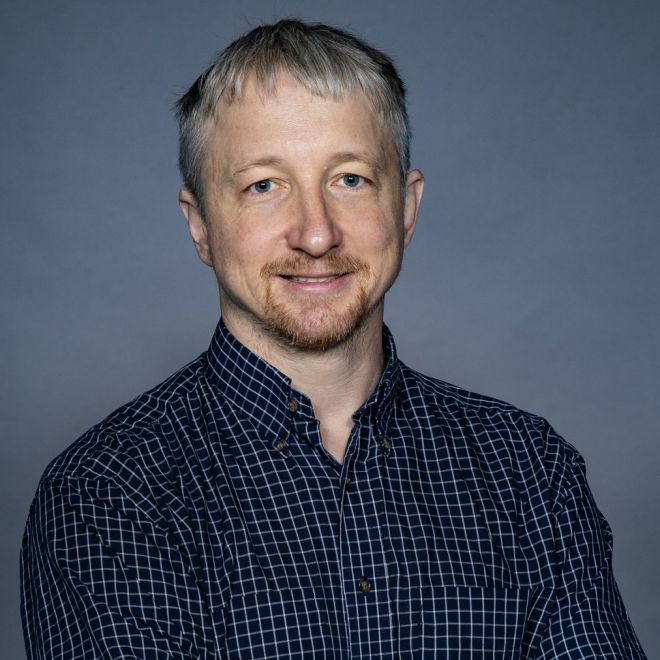Schedule
Day 1: Monday, Oct. 7, 2024
Time |
Speaker |
Talk Details |
|
Monday 8:45 am ~ 9:00 am |
Workshop organizers
|
Opening remarks and logistics
|
|
|
|
Session 1, Session chair: Xiaodi Wu
|
|
Monday 9:00 am ~ 9:50 am |
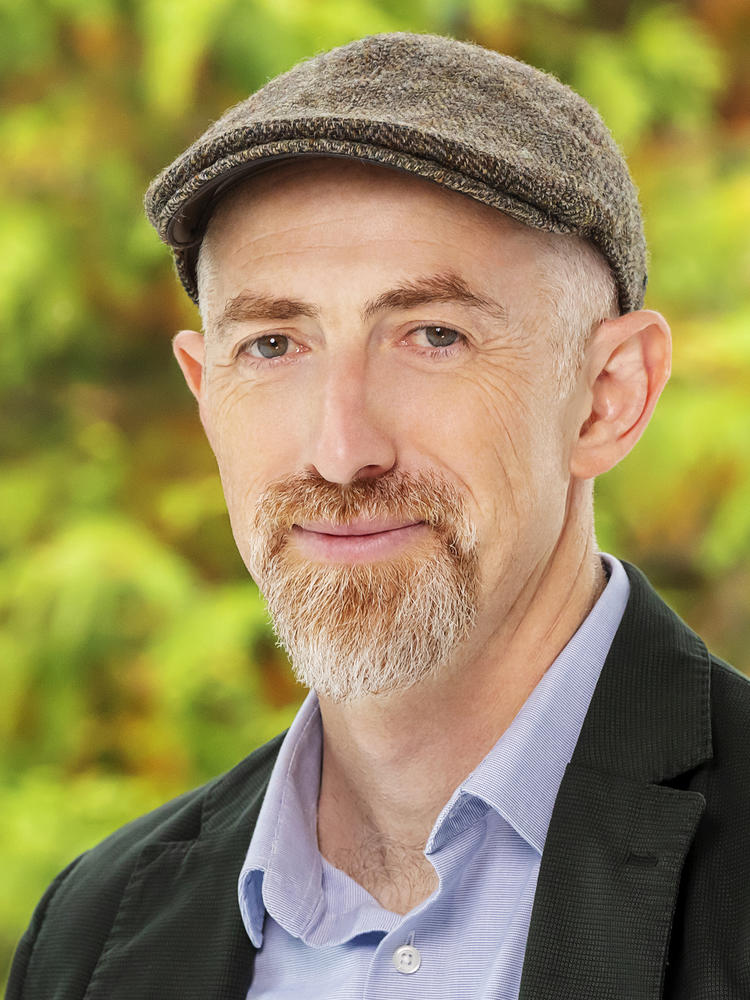
Hakan TüreciHakan E. Türeci is a Professor of Electrical and Computer Engineering at Princeton University. He earned his undergraduate degree in Physics from Bilkent University and completed his Ph.D. in Physics at Yale University in 2003. Following postdoctoral research at Yale and ETH Zurich, he became an Assistant Professor of Physics at ETH Zurich before joining Princeton University in 2010. His research primarily focuses on non-equilibrium dynamics in classical and quantum optical collective systems, with recent focus on quantum electrodynamics of superconducting devices, the physics of computation, and computation using physical systems. |
Harnessing Quantum Dynamics for Inference on Data Embedded in Weak Signals
AbstractRecent strides in machine learning have shown that computation can be performed by practically any controllable device that reacts to a physical stimulus that encodes the data. This perspective can push the boundaries of computation using Physical Neural Networks, and even help researchers understand their inspiration, biological neural circuits. One key challenge, though, is sampling noise, which limits the accuracy and the energy cost of computation with any physical system, even fault-tolerant quantum hardware. Are there reliable methods of computing in the weak input signal regime when noise dominates? How can we compare the computing performance across very different systems in the presence of noise? I will discuss one way of addressing these questions based on a metric, the Resolvable Expressive Capacity (REC), that was recently proposed to quantify the computational capacity of any physical system in the presence of sampling noise [1]. I will then discuss how the REC of a quantum system is limited by the fundamental theory of quantum measurement and how the latter imposes a tight upper bound on the REC of any finitely-sampled physical system. The calculation of REC requires only measured outputs and is, hence, easily calculable, as was recently demonstrated with optical and quantum systems [1]. A spectral problem associated with the REC can further be shown to provide the functions, called Eigentasks, that a physical system can approximate most accurately under sampling noise and with a given prior distribution from which its input is sampled. “Eigentasks” provide effective strategies for dealing with quantum sampling noise. In Ref. [2], the Eigentask Learning methodology was used to enhance generalization in supervised learning carried out on a superconducting quantum processor. Finally, I will discuss a recent generalization of the above ideas to inference on streaming data, that enables processing of temporal data over durations unconstrained by the finite coherence times of constituent qubits, without the need for error correction or mitigation [2]. The applicability of this result in practice is demonstrated with experiments we conducted on a superconducting quantum processor. [1] F. Hu et al. “Tackling Sampling Noise in Physical Systems for Machine Learning Applications - Fundamental Limits and Eigentasks.” Phys. Rev. X 13, 041020 (2023). [2] F. Hu et al. “Overcoming the Coherence Time Barrier in Quantum Machine Learning on Temporal Data.”, Nature Commun. 15, 7491 (2024). |
|
Monday 9:55 am ~ 10:25 am |
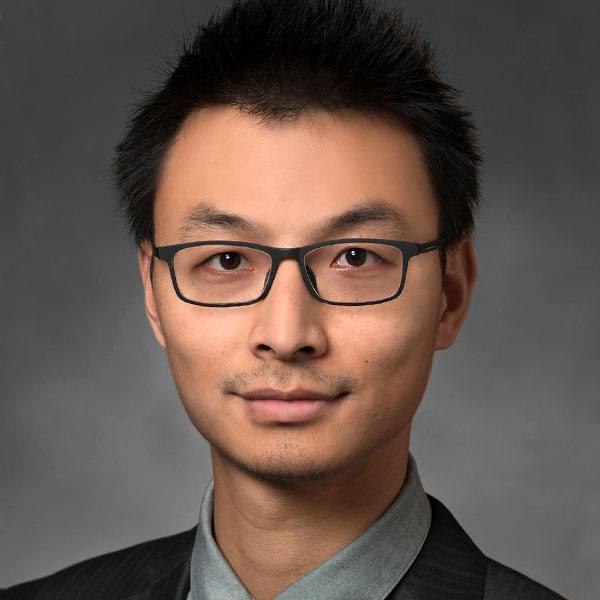
Quntao ZhuangQuntao Zhuang joined the USC Ming Hsieh Department of Electrical and Computer Engineering in August 2022. He received his B.A. in physics from Peking University in 2013 and Ph.D. in physics in 2018 from Massachusetts Institute of Technology. Before coming to USC, he was an Assistant Professor in Electrical and Computer Engineering and Optical Sciences at University of Arizona. Dr. Zhuang received the NSF CAREER award in 2022 and DARPA Young Faculty Award in 2020, which is selected as DARPA Director’s award in 2022. |
Dynamical Transition in Controllable Quantum Neural Networks with Large Depth
AbstractUnderstanding the training dynamics of quantum neural networks is a fundamental task in quantum information science with wide impact in physics, chemistry and machine learning. In this work, we show that the late-time training dynamics of quantum neural networks with a quadratic loss function can be described by the generalized Lotka-Volterra equations, which lead to a transcritical bifurcation transition in the dynamics. When the targeted value of loss function crosses the minimum achievable value from above to below, the dynamics evolve from a frozen-kernel dynamics to a frozen-error dynamics, showing a duality between the quantum neural tangent kernel and the total error. In both regions, the convergence towards the fixed point is exponential, while at the critical point becomes polynomial. We provide a non-perturbative analytical theory to explain the transition via a restricted Haar ensemble at late time, when the output state approaches the steady state. Via mapping the Hessian to an effective Hamiltonian, we also identify a linearly vanishing gap at the transition point. Compared with the linear loss function, we show that a quadratic loss function within the frozen-error dynamics enables a speedup in the training convergence. The theory findings are verified experimentally on IBM quantum devices. We will also discuss generalization to multiple data case beyond the binary case. |
|
Monday 10:25 am ~ 10:50 am |
|
Coffee Break
|
|
|
|
Session 2, Session chair: Quntao Zhuang
|
|
Monday 10:50 am ~ 11:40 am |
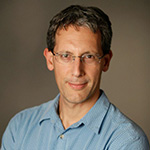
Daniel LidarDaniel Lidar is the holder of the Viterbi Professorship of Engineering at the University of Southern California and researches quantum information processing. He holds joint appointments in the departments of Electrical & Computer Engineering, Chemistry, and Physics & Astronomy. He is the Director of the USC Center for Quantum Information Science & Technology, the Director of the USC-IBM Quantum Innovation Center, and the co-Director of the USC Quantum Computing Center. He did his postdoctoral work at UC Berkeley after receiving his Ph.D. in Physics from the Hebrew University of Jerusalem in 1997. Prior to joining USC in 2005, he was a faculty member at the University of Toronto for five years. He is a recipient of a Sloan Research Fellowship and a Guggenheim Fellowship and is a Fellow of the AAAS, APS, and IEEE. |
Scaling Advantage in Approximate Optimization with Quantum Annealing
AbstractThis talk will begin with a review of a decade of efforts to demonstrate a scaling advantage in optimization using quantum annealing. Exact optimization has proven to be an elusive target, but recent work has finally demonstrated a quantum scaling advantage in approximate optimization. Tailored quantum error suppression and correction methods play an important role in this demonstration. The advantage is achieved for a certain class of spin-glass problems, where, for sufficiently large optimality gaps, quantum annealing demonstrates a time-to-approximate solution that scales better than PT-ICM, the state-of-the-art classical method. This is joint work with Humberto Munoz-Bauza, arXiv:2401.07184 |
|
Monday 11:45 am ~ 12:15 pm |
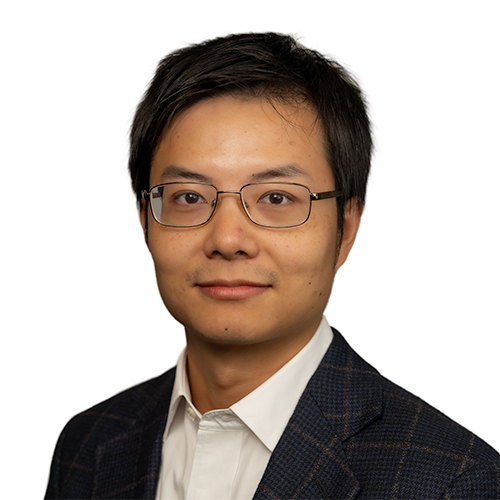
Yuan LiuYuan Liu is an Assistant Professor of Electrical & Computer Engineering and Computer Science at North Carolina State University. He is also an affiliated faculty in Physics. He received his B.S. in physics from Tsinghua University in Beijing. He received his M.S. in electrical engineering and a Ph.D. in chemical physics from Brown University. Prior to joining NC State faculty, he was a postdoctoral researcher at the Massachusetts Institute of Technology. His research interests lie at the intersection of quantum information science, theoretical chemistry and physics, and quantum engineering. |
Hybrid Oscillator-Qubit Quantum Processors: Instruction Set Architectures, Abstract Machine Models, and Applications
AbstractQuantum computing with discrete variable (DV, qubit) hardware is approaching the large scales necessary for computations beyond the reach of classical computers. However, important use cases such as quantum simulations of physical models containing bosonic modes, and quantum error correction are challenging for DV-only systems. Separately, hardware containing native continuous-variable (CV, oscillator) systems has received attention as an alternative approach, yet the universal control of such systems is non-trivial. Hybrid CV-DV hardware offers a great advantage in meeting these challenges, offering a powerful computational paradigm that inherits the strengths of both DV and CV processors. In this talk, I will present basics of hybrid CV-DV quantum computation, a variety of new hybrid CV-DV compilation techniques, algorithms, and applications, including the extension of quantum signal processing concepts to CV-DV systems and strategies to simulate systems of interacting spins, fermions, and bosons. To facilitate the development of hybrid CV-DV processor systems, a formal notion of Abstract Machine Models and Instruction |
|
Monday 12:15 pm ~ 1:45 pm |
|
Lunch Break
|
|
|
|
Session 3, Session chair: Jiaqi Leng
|
|
Monday 1:45 pm ~ 2:35 pm |
Silicon-based quantum processors
AbstractOf all of the qubit modalities being pursued, semiconductor spin qubits most closely resemble conventional transistors, which can be fabricated at scale with ~100 billion transistors on a chip. It is therefore prudent to pursue long-term approaches to fault-tolerant quantum computing with semiconductor spin qubits. I will give an update on recent progress, including high-fidelity multi-qubit control [1,2], long-range spin-spin coupling [3,4], and two-dimensional spin qubit arrays [5,6]. References [1] A Mills et al., Phys. Rev. Applied 18, 064028 (2022). [2] A. Mills et al., Sci. Adv. 8, eabn5130 (2022). [3] F. Borjans et al., Nature 577, 195 (2020). [4] X. Zhang et al., Phys. Rev. Applied 21, 014019 (2024). [5] W. Ha et al., Nano Lett. 22, 1443 (2022). [6] E. Acuna et al., arXiv:2406.03705. Supported by Army Research Office grants W911NF-24-1-0020 and W911NF-22-C-0002. |
|
|
Monday 2:40 pm ~ 3:10 pm |
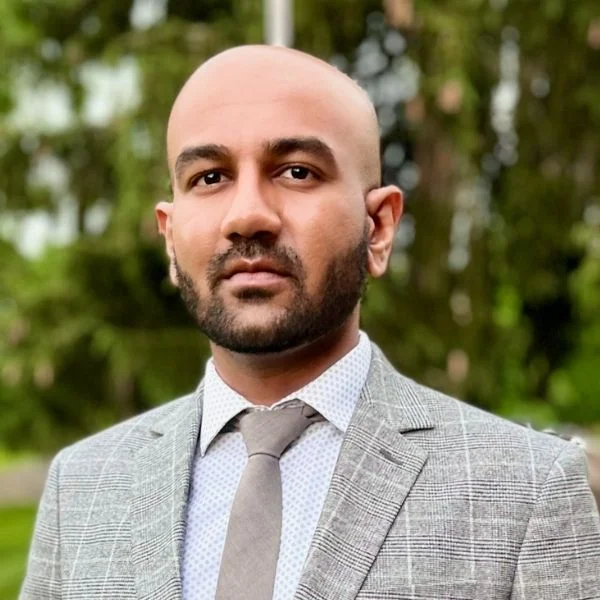
Tirthak PatelTirthak Patel is an Assistant Professor in the Department of Computer Science at Rice University and the Director of Positive Technology Lab, conducting systems-level research at the intersection of quantum computing and high-performance computing (HPC). His research explores the trade-offs among factors affecting reliability, performance, and energy efficiency, in recognition of which he has received the ACM-IEEE CS George Michael Memorial HPC Fellowship and the NSERC Alexander Graham Bell Canada Graduate Scholarship (CGS D-3). His work has also been nominated for the best paper award at several highly selective conferences, including Supercomputing (SC) and ICCAD. The tools, datasets, and methodologies from his work are largely open-sourced, as an important facet of his work is to make scientific research accessible. Prior to joining Rice University, he received his Ph.D. in Computer Engineering from Northeastern University. |
Reconfiguring Analog Rydberg Atom Quantum Computers for Quantum Generative Adversarial Networks
AbstractThe digital quantum computing model has been leveraged for several machine learning tasks, including generative models such as generative adversarial networks (GANs). While quantum computers have been implemented with different types of technologies, recently, analog Rydberg atom quantum computers have been demonstrated to have desirable properties such as reconfigurable qubit positions and multi-qubit operations. To leverage the properties of this technology, this talk will describe the implementation of quantum GANs on analog Rydberg atom quantum computers with parameterized pulses and qubit positions. The evaluation of this implementation using simulations and the QuEra Aquila analog quantum computer shows 33% better quality — measured using Frechet Inception Distance (FID) — in generated images than the comparative technique implemented on digital superconducting-qubit technology. |
|
Monday 3:10 pm ~ 3:35 pm |
|
Coffee Break
|
|
|
|
Session 4, Session chair: Daniel Lidar
|
|
Monday 3:35 pm ~ 4:25 pm |
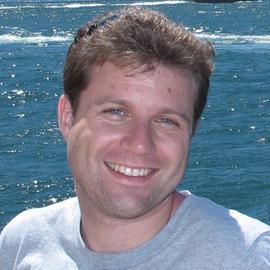
Carleton CoffrinDr. Carleton Coffrin is a senior scientist at Los Alamos National Laboratory with expertise in computer science, optimization, artificial intelligence, and quantum computing. Dr. Coffrin started exploring the field of quantum computation in 2016 and has had the opportunity to benchmark multiple generations of quantum computing hardware from vendors including D-Wave Systems and IBM. Dr. Coffrin was one of the founders of LANL's Quantum Computing Summer School program serving as a co-lead for three years (2018, 2019, 2020). Presently Dr. Coffrin leads a significant effort to understand and document how Los Alamos National Laboratory could use quantum computing technology to improve scientific discovery. |
Challenges and Successes in Solving Applications with Quantum Computers
AbstractIn this talk I will give an overview of some recent efforts at Los Alamos National Laboratory to use quantum computers for solving important applications that require quantum physics simulation. Our findings indicate significant resource requirements for gate-based models of quantum computing, which increases the appeal of alternative models of computation, such as analog quantum computing. Examples of how analog quantum computers are already demonstrating interesting results will be presented. |
|
Monday 4:30 pm ~ 5:00 pm |
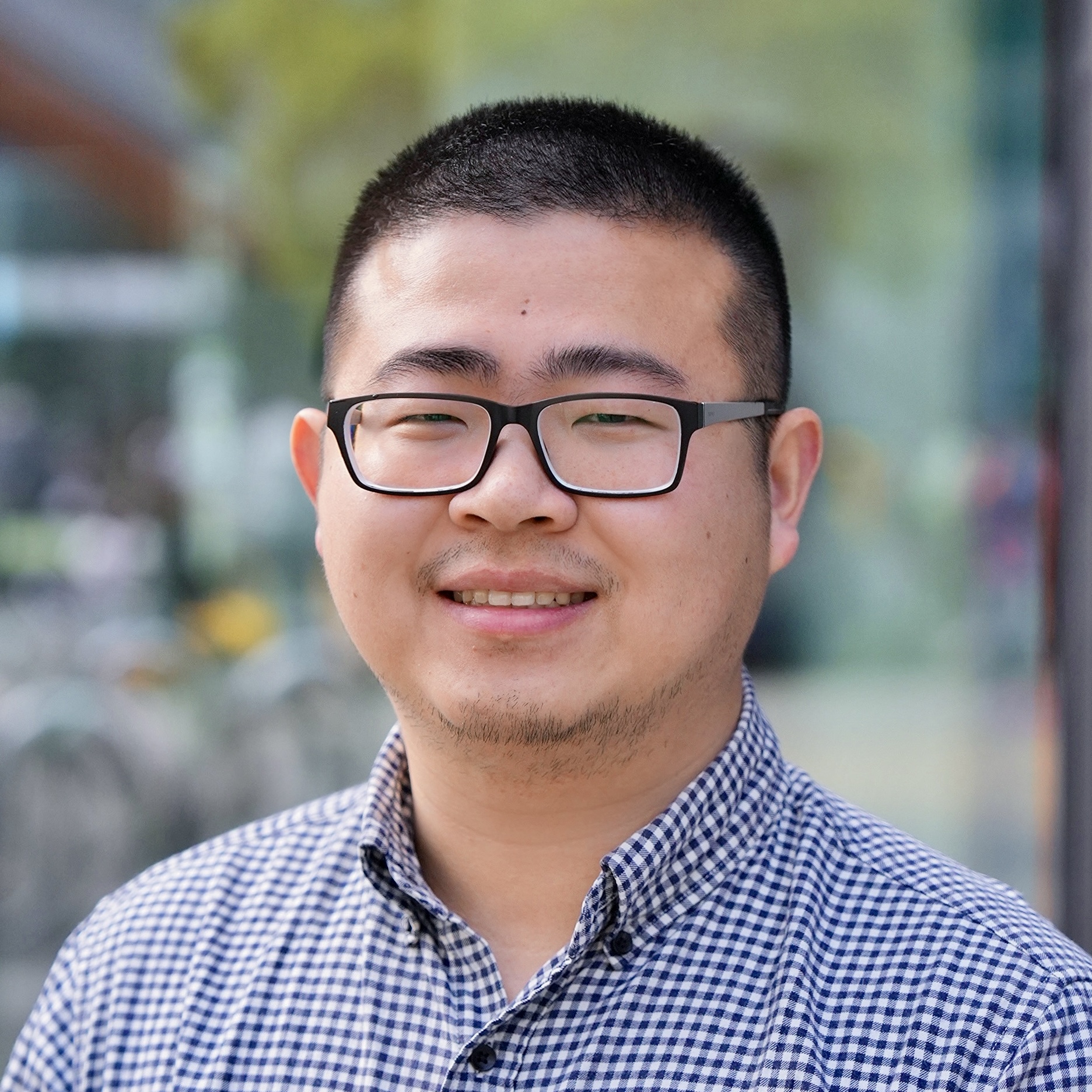
Yulong DongYulong Dong earned PhD in Applied Mathematics from the department of Mathematics, UC Berkeley. He was coadvised by Prof. Lin Lin and Prof. K. Birgitta Whaley. Yulong's research interest lies broadly in quantum algorithms, optimization theory, numerical analysis, and statistical inference and learning. |
Noise Learning with Quantum Signal Processing for Analog Quantum Computation
AbstractAnalog quantum computation is generally better suited for managing larger system sizes and longer simulation times than digital quantum computation. However, the lack of well-developed error characterization and correction techniques for analog systems significantly impedes it's practical applications. This gap highlights the critical need for developing specialized noise learning and calibration methods tailored to analog quantum computing. In this talk, we will introduce a metrology protocol designed specifically for estimating errors in control signals in analog quantum computers, which are subjected to continuous underlying dynamics. Furthermore, we will explore benchmarking methods that enhance system-level analysis by interleaving the evolution of the analog system with a control-feedforward ancilla qubit. We will discuss the advantages of this benchmarking method over previous approaches and how it opens up interesting research questions, such as the development of optimality analysis for analog metrology protocols. These findings will help guide and advance the development of error mitigation strategies in analog quantum computers. |
Day 2: Tuesday, Oct. 8, 2024
Time |
Speaker |
Talk Details |
|
|
|
Session 5, Session chair: Murphy Niu
|
|
Tuesday 9:00 am ~ 9:50 am |
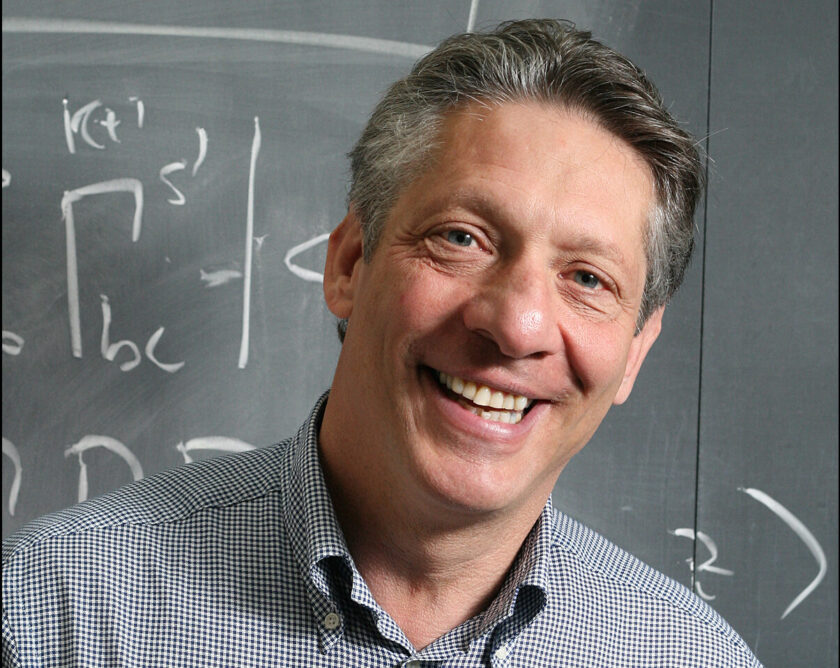
Edward FarhiEdward Farhi is a particle physicist who turned to quantum computing in the late 1990’s. HIs main interest is quantum algorithms. Farhi was the Director of Theoretical Physics at MIT for 12 years and officially retired from MIT in 2018. He is a Principal Research Scientist at Google. |
An Update on the Quantum Approximate Optimization Algorithm
AbstractThe QAOA is a quantum algorithm designed to find good solutions to combinatorial optimization problems. It consists of an alternation of simple-to-implement unitary transformations. Worst case performance guarantees have been proven for MaxCut and other problems. For the Sherrington Kirkpatrick model, which has random all-to-all connections, QAOA performance has been established (up to depth 20) on typical instances in the infinite size limit. The QAOA has quantum supremacy at its shallowest depth both in worst case and for typical instances coming from the SK model. Obstacles to performance have been established using locality and the Overlap Gap property but these set in only at depth log n which in practice is millions of qubits. In general there is no hint from extensive numerical studies that the QAOA fails to improve performance as the depth is increased. Recently it has been shown that for MaxCut on 3-regular graphs, instance-independent parameters can be chosen in advance that work well on all instances at high sizes. This eliminates the necessity of searching for good parameters when running the algorithm. |
|
Tuesday 9:55 am ~ 10:25 am |
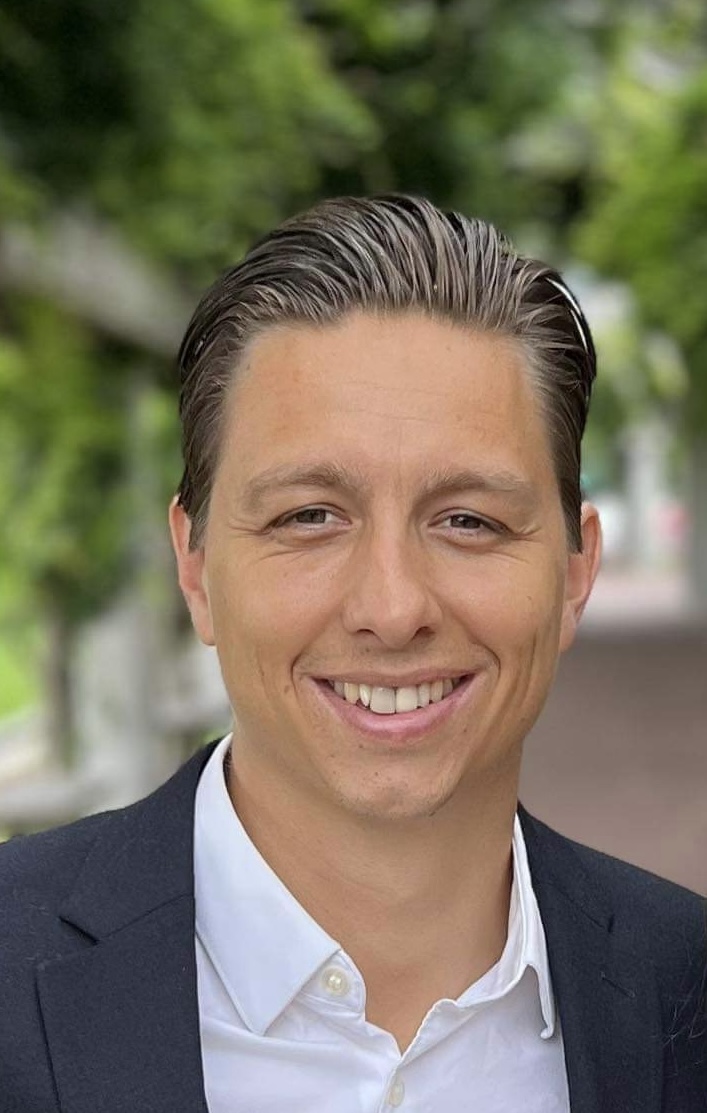
Trond AndersenTrond I. Andersen is a research scientist at Google Quantum AI, where he works on realizing new physical phenomena and beyond-classical applications on NISQ hardware. Trond received his B.S. in Physics at Massachusetts Institute of Technology, where he studied optoelectronic phenomena in graphene with Prof. Pablo Jarillo-Herrero. He then moved to Mikhail Lukin's group at Harvard University for his PhD, where he studied excitons in twisted 2D semiconductors, and also used nanoscale defects in diamond to probe electron-phonon dynamics in graphene. In his current work at Google, Trond is particularly focused on hybrid analog-digital quantum simulation, with the goal of using quantum hardware to gain new insights about both non-equilibrium phenomena and ground state properties in quantum magnets. |
Thermalization and Criticality on an Analog-Digital Quantum Simulator
AbstractUnderstanding how interacting particles approach thermal equilibrium is a major challenge of quantum simulators. Unlocking the full potential of such systems toward this goal requires flexible initial state preparation, precise time evolution, and extensive probes for final state characterization. We present a quantum simulator comprising 69 superconducting qubits which supports both universal quantum gates and high-fidelity analog evolution, with performance beyond the reach of classical simulation in cross-entropy benchmarking experiments. Emulating a two-dimensional (2D) XY quantum magnet, we leverage a wide range of measurement techniques to study quantum states after ramps from an antiferromagnetic initial state. We observe signatures of the classical Kosterlitz-Thouless phase transition, as well as strong deviations from Kibble-Zurek scaling predictions attributed to the interplay between quantum and classical coarsening of the correlated domains. This interpretation is corroborated by injecting variable energy density into the initial state, which enables studying the effects of the eigenstate thermalization hypothesis (ETH) in targeted parts of the eigenspectrum. Finally, we digitally prepare the system in pairwise-entangled dimer states and image the transport of energy and vorticity during thermalization. These results establish the efficacy of superconducting analog-digital quantum processors for preparing states across many-body spectra and unveiling their thermalization dynamics. |
|
Tuesday 10:25 am ~ 10:50 am |
|
Coffee Break
|
|
|
|
Session 6, Session chair: Ravi Naik
|
|
Tuesday 10:50 am ~ 11:40 am |
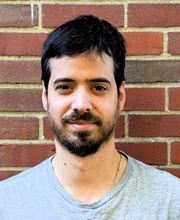
Tom ManovitzTom Manovitz is an HQI fellow at Harvard. An experimental physicist, his work focuses on harnessing highly controlled quantum systems based on individual ultracold atoms to explore quantum computing, quantum many-body physics, and quantum precision metrology. His contributions to these fields include the realization of quantum computers, the development of high-fidelity quantum gates, the exploration of quantum phase transitions and non-equilibrium many-body dynamics, the study of topological states of matter, and the use of entangled states for precision measurement of atomic properties. |
Quantum coarsening and collective dynamics on a programmable quantum simulator
AbstractUnderstanding the collective quantum dynamics of nonequilibrium many-body systems is an outstanding challenge in quantum science. In particular, dynamics driven by quantum fluctuations are important for the formation of exotic quantum phases of matter, fundamental high-energy processes, quantum metrology, and quantum algorithms. Here, we use a programmable quantum simulator based on Rydberg atom arrays to experimentally study collective dynamics across a (2+1)D Ising quantum phase transition. After crossing the quantum critical point, we observe a gradual growth of correlations through coarsening of antiferromagnetically ordered domains. By deterministically preparing and following the evolution of ordered domains, we show that the coarsening is driven by the curvature of domain boundaries, and find that the dynamics accelerate with proximity to the quantum critical point. We quantitatively explore these phenomena and further observe long-lived oscillations of the order parameter, corresponding to an amplitude (Higgs) mode. These observations offer a unique viewpoint into emergent collective dynamics in strongly correlated quantum systems and nonequilibrium quantum processes. |
|
Tuesday 11:45 am ~ 12:15 pm |
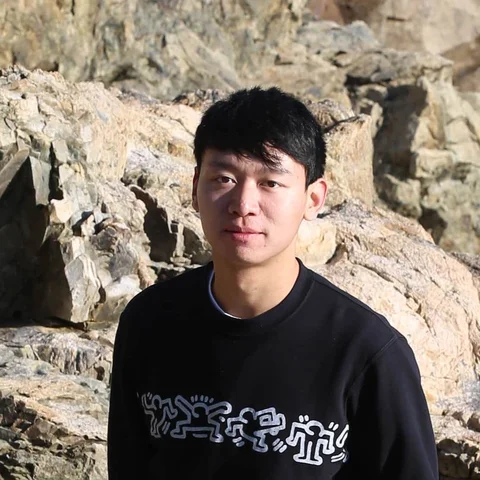
Jiaqi LengJiaqi Leng is a Simons Quantum Postdoctoral Fellow at the Simons Institute for the Theory of Computing, UC Berkeley. He received his Ph.D. from the University of Maryland in 2024, under the supervision of Prof. Xiaodi Wu. His research focuses on quantum algorithms for mathematical optimization and scientific computing. |
Quantum Dynamics for Continuous Optimization
AbstractContinuous optimization problems arise in virtually all disciplines of quantitative research, including applied mathematics, computer science, and operations research. Many real-world optimization problems exhibit sophisticated landscapes characterized by multiple local minima, rendering them intractable both in theory and practice. This talk focuses on Quantum Hamiltonian Descent (QHD), a quantum algorithm for continuous optimization. QHD is derived as the path integral of standard gradient descent (GD). It inherits the algorithmic simplicity of GD while exhibiting drastically different behavior due to the quantum interference of classical paths, particularly in nonlinear and nonconvex optimization. Specifically, we prove that QHD can efficiently solve a family of degree-4 polynomial optimization instances, each characterized by exponentially many local minima. Beyond the standard circuit-based implementation, we also introduce an analog implementation of QHD through the Hamiltonian embedding technique for sparse Hamiltonian simulation. Based on this approach, we developed an open-source software package named QHDOPT, which was used in an empirical study to confirm the practical advantages of QHD for large-scale nonlinear optimization problems. |
|
Tuesday 12:15 pm ~ 1:45 pm |
|
Lunch Break
|
|
|
|
Session 7, Session chair: Hakan Türeci
|
|
Tuesday 1:45 pm ~ 2:35 pm |
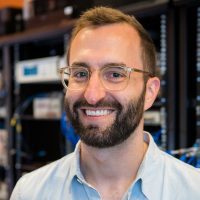
Jeff GroverJeff Grover is a Research Scientist in the EQuS group. He focuses on software infrastructure and building extensible calibration, control, and metrology protocols for multi-qubit systems. Prior to joining EQuS, he spent 5 years in industry – 3 years as a Senior Physicist at Northrop Grumman working on quantum annealing in collaboration with MIT Lincoln Laboratory, and 2 years as a Senior Data Scientist at athenahealth applying machine learning to healthcare. He also had an earlier stint in EQuS in 2015 as a Postdoctoral Associate, where he used JTWPAs to generate broadband quantum-correlated radiation towards improving qubit readout. Jeff received his PhD in Physics from the Joint Quantum Institute at the University of Maryland in 2015. He graduated from Amherst College in 2009, majoring in Physics and Mathematics. |
Emulating the Bose-Hubbard Model with Arrays of Superconducting Qubits
AbstractArrays of coupled superconducting qubits can be used as analog quantum simulators of tight-binding models with broadly adjustable model parameters. Here, microwave excitations in the array behave as strongly interacting particles according to the Bose-Hubbard model. In this talk, I will give an overview of superconducting qubit-based simulators with a focus on emulating two-dimensional materials. I will then describe recent experiments using a 4-by-4 square array of coupled transmon qubits: measuring the entanglement entropy of many-body states prepared at various energies, generating synthetic magnetic fields to observe key signatures like the Aharonov-Bohm effect, and studying flat-band (de)localization in a rhombic lattice. Time permitting, we will also discuss future directions such as increasing connectivity and scaling to larger arrays. |
|
Tuesday 2:40 pm ~ 3:10 pm |
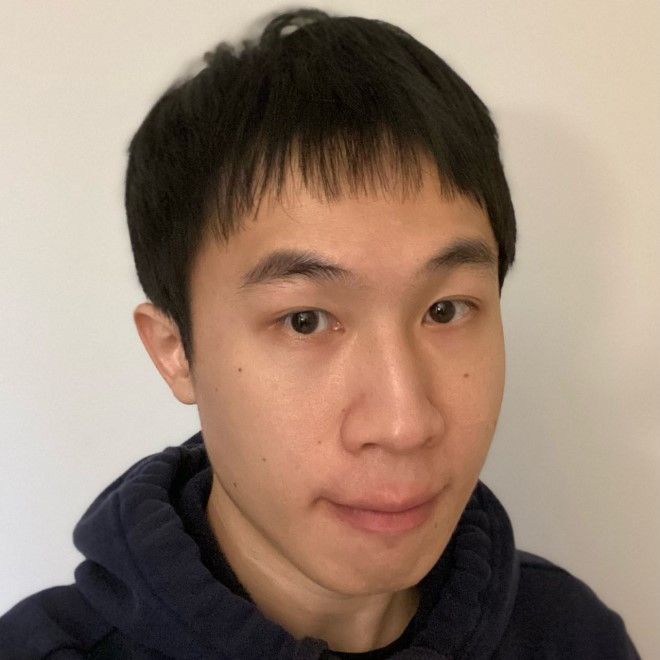
Junyi LiuJunyi Liu is a postdoctoral scholar at the QuICS, University of Maryland, advised by Xiaodi Wu. He received his Ph.D. in computer science from the Institute of Software, Chinese Academy of Sciences, under the supervision of Prof. Mingsheng Ying. His expertise lies in the analysis and verification of quantum software. His current focus is on designing software infrastructure to enhance the performance and accessibility of quantum devices. |
RISC-Q: a generator for real-time quantum control system-on-chip (SoCs) compatible with RISC-V
AbstractAdvancements in quantum hardware and applications drive the rapid development of quantum hardware controllers. While fundamental principles are shared across the control of various quantum systems, the diversity of experiments proposes distinct requirements for each controller. Open-source software has successfully addressed these varying needs by developing modular and composable components within an extensible ecosystem, akin to Linux, maintained through extensive collaboration. Recently, this methodology has been adapted for hardware development, leading to the establishment of an open-source ecosystem centered around RISC-V, an extensible Instruction Set Architecture (ISA). To leverage this emerging open-source hardware ecosystem, we developed RISCQ, an open-source generator for quantum controllers based on the RISC-V ISA. By adopting a software-oriented approach to hardware design, our generator allows for easy extensibility through adding new plugins, without requiring modifications to other parts of the generator. Users can construct a quantum controller simply by composing plugins provided by us or other users, tailored to their specific requirements, without the need for wiring or reimplementing hardware modules. Additionally, our generator includes tools that enable users to create plugins for specialized needs, such as customized decoding and pulse generation logic, which can be easily integrated by others. By incorporating the RISC-V toolchain, including simulators, compilers, and bus protocols, we are establishing a basic framework for collaborative development in quantum control systems. |
|
Tuesday 3:10 pm ~ 3:35 pm |
|
Coffee Break
|
|
|
|
Session 8, Session chair: Tom Manovitz
|
|
Tuesday 3:35 pm ~ 4:25 pm |
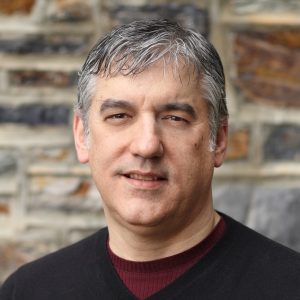
Christopher MonroeChristopher Monroe is the Gilhuly Family Presidential Distinguished Professor of Electrical and Computer Engineering and Physics at Duke University. He is also the Co-Founder and former CEO and Chief Scientist of IonQ, Inc., the first public pure-play quantum computing company. Monroe has pioneered nearly all aspects of trapped ion quantum computers and simulators, from demonstrations of the first quantum gate, monolithic semiconductor-chip ion trap, and photonic interconnects between physically separated qubits; to the design, fabrication, and use of full-stack ion trap quantum computer systems in both university and industrial settings. He is a key architect of the US National Quantum Initiative, a Fellow of the American Physical Society, Optical Society of America, the UK Institute of Physics, the American Association for the Advancement of Science, and is a member of the National Academy of Sciences. |
Gate and Analog Quantum Processing with Trapped Ions (they’re the same thing)
AbstractTrapped atomic ion qubits are the most mature of qubit platforms, with essentially infinite idle coherence time and near-perfect SPAM. The entanglement of trapped ion qubits via discrete gates or more global analog operations proceeds from the same physics, and there is hence a continuous transition between these two models of quantum processing. While the central challenge ahead is the engineering of trapped ion system to scale following some well-defined architectural paths, it will be critical to continue co-designing circuits, algorithms, and simulations to the systems as they grow. This is particularly important as the ion trap architecture enjoys the prospect of a reconfigurable and fully-connected qubit graph at scale. |
|
Tuesday 4:30 pm ~ 5:00 pm |
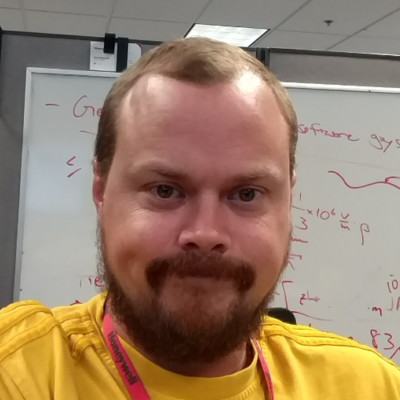
David HayesDavid Hayes is the Sr. Manager for Theory and Architecture on the hardware team, living in Broomfield, Colorado. There he focuses on designing next generation trapped-ion hardware, quantum error correction protocols, and near-term applications. |
Characterizing the Noise in Quantinuum’s Quantum Computers
AbstractQuantinuum has constructed two generations of gate-based digital quantum computers, building a sophisticated error model. In this talk I will go over our methods for quantum characterization, validation, and verification (QCVV), giving a suite of measurements for individual operations, holistic metrics, and applications. These measurements have direct implications on near-term applications, pointing toward where upgrade efforts should be concentrated. More recently, we have begun QCVV efforts on the logical level, and I will briefly mention some preliminary results. |
Day 3: Wednesday, Oct. 9, 2024
Time |
Speaker |
Talk Details |
|
|
|
Session 9, Session chair: Sheng-Tao Wang
|
|
Wednesday 9:00 am ~ 9:50 am |
Analog quantum simulation with trapped ions
AbstractWe will describe several projects focused on analog quantum simulation using trapped-ion chains. First, we will discuss a demonstration of universal scaling in a non-equilibrium setting [arXiv:2309.10856]. Second, we will discuss an observation of an equilibrium phase transition in 1D [arXiv:2310.19869]. Third, we will present a proposal for simulating meson scattering [arXiv:2403.07061]. Fourth, we will present theoretical and experimental results on string breaking. |
|
|
Wednesday 9:55 am ~ 10:25 am |
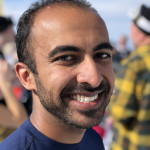
Ravi NaikRavi is a research scientist at Lawrence Berkeley National Laboratory and Head of Measurement at the Advanced Quantum Testbed. He received his PhD at the University of Chicago, working with Professor David Schuster on quantum information science with multimode superconducting circuit quantum electrodynamics. His current research focuses on development of high-performance superconducting circuit quantum processors with novel quantum controls for qubits and qudits. |
Realizing multi-qubit entangling interactions on a superconducting circuit testbed with quantum control
AbstractMulti-qubit entanglement is a valuable resource for several quantum information science applications, including quantum many-body simulation and quantum error correction. However, traditional approaches to control of quantum devices rely on pairwise interactions, making multi-qubit gates costly to execute. This is particularly a challenge for superconducting devices, where connectivity is fixed and restricted to pairwise coupling in almost all cases. Here, we demonstrate a single-step three-qubit gate, the iToffoli, on a fixed-frequency, fixed-coupling superconducting processor using microwave quantum control. The technique leverages simultaneous, non-commuting pairwise entangling drives to realize the gate with fidelity over 98%. This approach represents a novel approach to efficient multi-qubit interactions in limited connectivity systems. |
|
Wednesday 10:25 am ~ 10:50 am |
|
Coffee Break
|
|
|
|
Session 10, Session chair: Yuxiang Peng
|
|
Wednesday 10:50 am ~ 11:40 am |
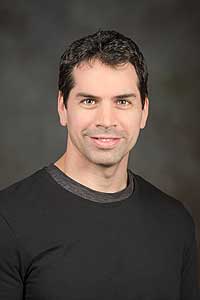
Edwin BarnesEd Barnes is a Professor of Physics and Moore Faculty Fellow at Virginia Tech, where he has been since 2015. Prior to that, he held a postdoctoral position at the University of Virginia and a senior research associate position in both the Joint Quantum Institute and the Condensed Matter Theory Center at the University of Maryland. He earned a doctoral degree in Physics from the University of California, San Diego in 2006. |
Control-based variational quantum algorithms and dynamical noise suppression
AbstractThe simulation of strongly correlated systems is one of the most exciting potential applications of quantum computers. There is hope that variational algorithms could enable the simulation of classically intractable problems on near-term devices, but this requires significant reductions in both variational circuit depths and measurement counts. I will discuss our recent efforts to lower these resource demands by eliminating quantum gates and circuits completely and instead optimizing control pulses directly. I will also describe a general approach to designing control pulses that suppress noise while implementing qubit rotations that is based on shaping geometric space curves. |
|
Wednesday 11:45 am ~ 12:15 pm |
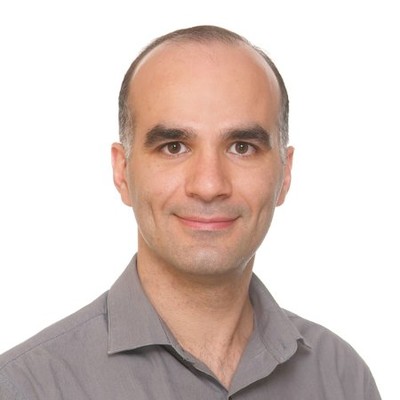
Hossein SadeghiHossein Sadeghi Esfahani, PhD is the Director of Quantum Applications and Partnerships at PASQAL Canada Inc. He leads the development of quantum applications and fosters research collaborations across North America. His doctoral research at the University of British Columbia focused on ultracold systems, with a particular emphasis on Rydberg atoms. He is interested in industrial applications of quantum computing and the current challenges in reaching quantum utility. |
Analog quantum computing with neutral atoms
AbstractAnalog quantum computing is a powerful paradigm for solving certain computational problems. Unlike digital or gate-model, which relies on discrete gate operations, analog quantum computers use continuous quantum systems such as neutral atoms (Rydberg atoms), trapped ions, or superconducting circuits (quantum annealing) to directly simulate physical processes. These quantum computers offer promising applications in quantum simulation, optimization, and machine learning. In this talk I'll review Pasqal and its technology that uses neutral atoms trapped in optical tweezers to perform quantum computing. Neutral atoms allow a scalable platform for analog and digital quantum computing. I'll demonstrate our roadmap and how it is designed to support analog computing today and add new features as well to enable two-qubit gates, or digital quantum computing in the future. I'll describe three use cases and their potentials and challenges for achieving quantum advantage. |
|
Wednesday 12:15 pm ~ 1:45 pm |
|
Lunch Break
|
|
|
|
Session 11, Session chair: Xiaodi Wu
|
|
Wednesday 1:45 pm ~ 2:35 pm |
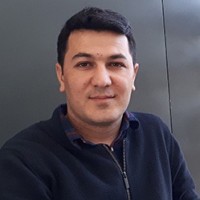
Vahagn MkhitaryanVahagn Mkhitaryan is a Senior Research Associate at Purdue University. He earned his Bachelor’s degree in Electrical Engineering from Yerevan State University in Armenia (2006-2010), followed by a Master’s degree in Plasmonics and Photonics (2010-2012) from the same institution. He pursued his PhD at ICFO – the Institute of Photonic Sciences in Barcelona, Spain, under the supervision of Professors Valerio Pruneri and Javier García de Abajo. His doctoral research involved the study of periodic nanophotonic structures and devices based on multilayer thin films of phase-change materials, where he combined both experimental techniques and theoretical modeling to investigate light-matter interactions in these systems. After completing his PhD, he continued at ICFO as a Postdoctoral Researcher (2017-2021) in the Nanophotonics Theory group, working with Prof. Javier García de Abajo. During this period, his research focused on electron energy loss spectroscopy and plasmons in atomically thin metals. In 2021, he moved to the United States and joined Purdue University, where he works with Prof. Vladimir Shalaev’s group. In his current role, he contribute to research on light-matter interaction, condensed matter physics, and quantum materials, with a focus on topological quantum systems and quantum simulations using Rydberg atom array-based simulators.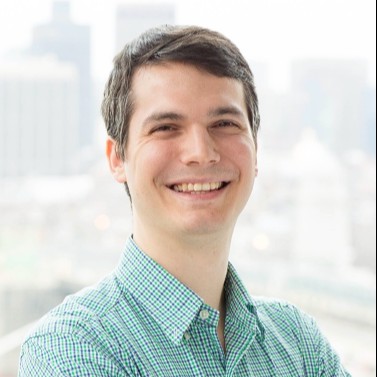
Péter KómárPeter Komar is a Sr. Applied Scientist in the Amazon Braket team where he works on integration of new quantum devices to the Braket service and researches their applications. He holds a PhD in physics from Harvard University where he conducted theoretical research in the field of quantum metrology, searching for practical ways to achieve ultimate measurement accuracy, set by the Heisenberg limit. Peter is passionate about all means of extracting maximal information from limited data. |
Quantum phases of Rydberg atoms on Shastry - Sutherland lattice
AbstractWe explore the phase diagram of Rydberg atoms in a frustrated Shastry-Sutherland lattice. Using the density matrix renormalization group, we map out a rich phase diagram in a three-dimensional parameter space that is naturally realizable in current Rydberg atom platforms. In particular, besides a plethora of classical phases, we show the presence of phases stabilized exclusively by quantum fluctuations. We employ order parameter symmetry analysis to show the presence of novel quantum critical points. Lastly, we tested most of the theoretical predictions experimentally using QuEra’s Rydberg quantum computer on Amazon Braket and found excellent agreement between theoretical predictions and experiments. |
|
Wednesday 2:40 pm ~ 3:10 pm |
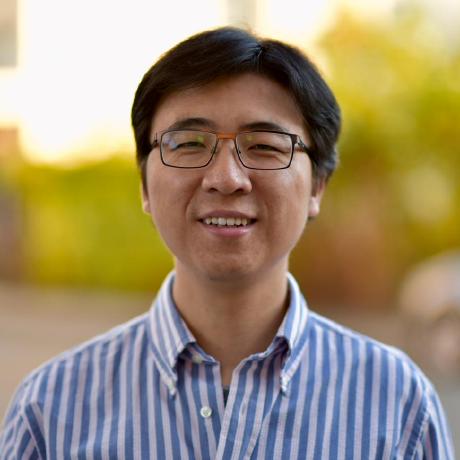
Sheng-Tao WangDr. Shengtao Wang is currently the Head of Quantum Algorithms & Applications at QuEra Computing Inc., which is a leader in commercializing quantum computers using neutral atoms. Dr. Wang is an expert in the development of near-term quantum algorithms and applications, in the areas of quantum optimization, quantum simulation, and quantum machine learning. Prior to his position at QuEra, Dr. Wang was a postdoctoral scholar at the department of Physics at Harvard University, during which he developed near-term quantum optimization algorithms implementable on today’s neutral-atom quantum computers. He received his PhD in Physics at the University of Michigan – Ann Abor in 2017. |
Some Results on Aquila - QuEra’s neutral-atom analog quantum computer
AbstractI’ll introduce QuEra’s first-generation, 256-qubit analog quantum computer, Aquila, and present some recent scientific works using Aquila for demonstrations in the areas of quantum optimization, analog quantum simulation, and quantum machine learning. This includes an overview of the near-term applications that can be run on neutral-atom analog quantum computer, with hardware-native programmability and implementations. |
|
Wednesday 3:15 pm ~ 3:45 pm |
William Kindel |
TBD
AbstractTBD |
|
Wednesday 4:00 pm ~ 6:30 pm |
|
Poster Session & Social Gathering at QuICS
|
